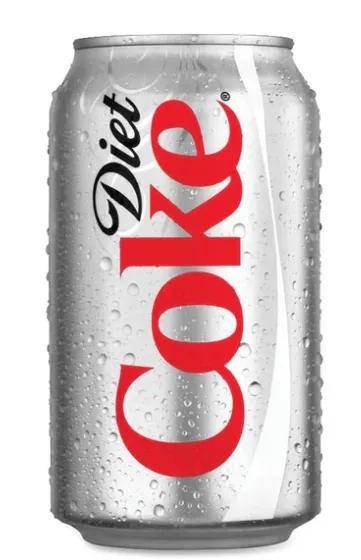Is my Diet Coke going to give me cancer?
Craig Shearer - 17th July 2023
So, I’m a Diet Coke drinker. I don’t drink hot drinks, and never have for my whole life. At least from my teenage years, when hot drinks were introduced in the form of tea, I always found them too hot and would burn my mouth. So, at least for the past few decades, I’ve consumed a reasonable* amount of Diet Coke.

Recently, the World Health Organisation has classified aspartame, which is the artificial sweetener that is used to sweeten Diet Coke, as a “possible carcinogen” - putting it in Group 2B. But, to be in Group 2B, there doesn’t have to be strong evidence, just evidence, no matter how weak. The categorisation also doesn’t say anything about the risk of consuming the substance - just that it’s possibly associated with an increased risk of cancer.
There are a bunch of other items with a Group 2B classification, including exposure to extremely low frequency magnetic fields (should I take off my headphones that produce bass frequencies?), radio frequency electromagnetic fields (maybe stop using my phone), and the perineal use of talcum powder. Additionally, drinking very hot drinks is also put in Group 2B.
The aspartame issue has been well covered in many skeptical and popular media outlets. The fact is that it’s an extremely well-researched additive that has been in use for decades. Were there some risk of cancer, it would likely have been noticed in epidemiological data. I liken it to the supposed risk of cancer from mobile phone use. We’ve been holding phones to our heads for several decades now, but there’s no evidence that there’s an increase in cancer due to this.
I think there’s an element of chemophobia in this, and also a moral dimension to it.
When the news first came out about aspartame’s classification as a possible carcinogen, I saw posts on social media which trotted out decades old criticism of aspartame. Here’s a sample from the Facebook feed of one of my friends:
Aspartame consists of 2 amino acids (Aspartic Acid & Phenylalanine) with an extra carbon atom stuck on the end.
When an aspartame molecule breaks apart in the small intestine this carbon disengages from the amino acid and forms a single molecule of METHANOL.
Methanol is found in antifreeze and rocket fuel!
The body deals with Methanol by transforming it into waste products that include FORMALDEHYDE, (a carcinogen that morticians use as embalming fluid).
A study conducted way back in 2005 linked aspartame consumption with an increased lifetime cancer risk.
Yummy…… diet soda’s and a very wide range of ‘food’ you don’t even realise have this product in…
Preservative 951 (read labels)
I think the chemophobia aspect is that people are suspicious of “chemicals”. But, as we all know, everything is a chemical. People are suspicious of those tricky chemicals added to food that aren’t “natural”. Ah, the appeal to nature fallacy!
From a moral perspective, I think that people think that it’s somehow cheating to use artificial sweeteners, that it allows you to consume “bad” foods and beverages with impunity and not suffer the health effects from such bad foods. But humans have a history of using technology to improve our lives. Is it also somehow cheating to wear glasses that improve our sight?
At the end of the day, many of us enjoy carbonated drinks, and it’s a matter of balancing risks. Taking things in moderation is unlikely to do you much harm. And, of course the dose of aspartame would have to be quite high to have any possibility of having an effect. From the WHO recommendations, it would take a daily consumption in excess of 9 cans for a 60 - 70 kg male, and a lot more than that if you’re significantly heavier. I think most people won’t be consuming those levels!
- The definition of “reasonable” is up to individual interpretation of course. I have recently been trying to cut down my consumption, replacing Diet Coke with water. Still, we all have our vices, and it’s something I enjoy, and there’s little evidence it’s going to kill me!